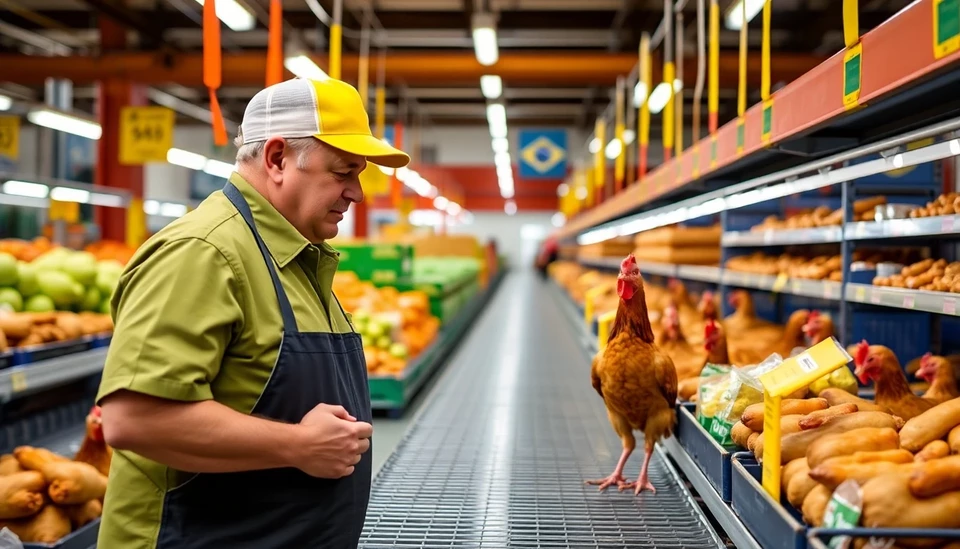
In a significant turn of events in the global poultry market, Brazilian chicken giant BRF has expressed optimism about the prospects of its sales in light of changing trade relations under the Trump administration. The ongoing trade war between the United States and several countries has inadvertently positioned Brazil as a favorable alternative source for chicken products, which has raised BRF's expectations for growth and expansion in the international marketplace.
The U.S. has been embroiled in a series of tariffs and trade disputes that have created barriers for American poultry exporters. This trade environment has prompted businesses to seek out alternative suppliers, a gap that BRF is keen to fill. As a result of these shifts, BRF reported an increase in demand from various markets, capitalizing on the growing need for chicken amidst the disruption of traditional supply chains.
BRF’s strategic positioning as a leading exporter has allowed the company to leverage these changes effectively. With Brazilian chicken being viewed as a more competitive option, the company anticipates surging sales figures that could significantly bolster its revenue streams. This development not only reflects BRF's adaptability but also highlights Brazil's emerging role as a key player in the global agricultural sector.
The firm has acknowledged the broader implications that these trade tensions could have on its operational strategies. With ongoing negotiations and uncertainty permeating trade areas, BRF's executives are already adapting their approaches to ensure that they can meet the rising global demand for poultry products. This includes enhancing supply capabilities and fostering relationships with international buyers, particularly in regions that are re-evaluating their trade relations with the U.S.
In this new landscape, where tariffs could potentially hinder US poultry sales, BRF's outlook is brightened by potentially increased market share both domestically within Brazil and internationally. As they prepare for the competitive landscape ahead, the firm is refining its marketing strategies to emphasize the quality and cost-effectiveness of its products.
Market analysts foresee that BRF's proactive stance could lead to a substantial boost in exports, especially to nations that are reconsidering their dependence on American poultry due to trade barriers. The scenario has positioned Brazilian chicken as an attractive option, which has prompted BRF to ramp up its production capabilities to meet the anticipated surge in demand.
As the poultry market continues to navigate these complexities, BRF stands at the forefront, poised to potentially capitalize on new market opportunities as the trade war unfolds. The underlying shifts in consumer preference and demand dynamics in the wake of the trade tensions could lead to a significant transformation in the global poultry supply chain, with BRF ready to seize the moment.
As 2024 draws near, stakeholders within the food production industry will likely keep a close watch on BRF's performance and strategic maneuvers as the firm seeks to redefine its market presence amidst these shifting trade winds.
#Brazil #BRF #PoultryMarket #TradeWar #ChickenSales #GlobalTrade #TrumpAdministration #FoodIndustry
Author: John Harris




